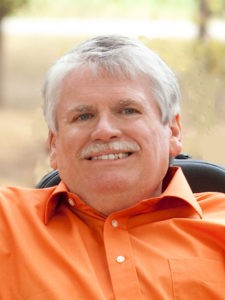Neither one of us had a clue what we were doing 12 years ago, but a friend and I started a church.
We didn’t know anything about starting a church, but we knew a great deal about church. Between us, we had more than 50 years of pastoral experience with churches from very small to large. We knew how churches operate, but more importantly, we knew how they should operate.
Our non-negotiables
We had a couple of non-negotiables when we started. First, we were committed to not owning any property. We both knew that a large percentage of church problems stem from buildings and property. The truth is that a church doesn’t own property; the property owns the church.

Terry Austin
Owning property means a steady stream of money is required for mortgage payments and utilities. Many (perhaps most) new churches falter because they bought property too early. The purpose of the church changes when it owns property. They never write it in a mission statement, but the reality hits home the first of every month when bills are due. The church exists to serve God (or whatever else they put in the mission statement) and make the payments.
This financial pressure means that some people will step up and assume responsibility while others sit back and let them. The situation is that some people have ownership in the church and others don’t. Over time, the gap between these groups widens until it reaches the average of 15% to 20% of the members providing the bulk of the money. I know this because I taught church stewardship for 20 years.
The problem of ‘professional clergy’
Our other non-negotiable was that neither of us would take any money. We were at a point in our lives where we didn’t need the money, and we were willing and able to give the time. There’s a lesson here for most pastors, not just two old guys with nothing better to do. Pastors have become too reliant on the church to make a living.
The church has developed this concept of a “professional clergy,” and it is beneath us to consider not being paid by the church. This has created a problem for both the church and the pastor. In order to be “professional clergy,” a pastor needs a thorough education, a Ph.D. if possible. I don’t need to explain that education is expensive. Potential pastors are leaving seminary with enormous debt, limiting options in ministry. If a pastor needs $75,000 a year just to live and service the debt, it requires a church with a substantial budget.
That takes us to the problem of needing “professional clergy” for the church. Not only is the cost of securing and maintaining a building a heavy burden, but now the added cost of paying a large salary makes it even harder. It’s not uncommon for a church to use 80% of the offerings to cover these two items. Once again, I know this because I taught church stewardship for 20 years.
Back to the story
However, this is not an article about church finances. Back to my story of starting a church with my friend. In addition to the two non-negotiables, the theme of what we set out to do turned out to be unacceptable to some. It was simple: We put Christ in the center without a circumference.
“We put Christ in the center without a circumference.”
Picture a circle. Now place Christ in the center as representative of our goal to make him the focus of everything we do. Now, erase the lines of the circle, and you have an image of what Christ in the center without a circumference means. Everyone is welcome, no questions asked. Obviously, we didn’t have a membership roster.
We did not call it a “Baptist” church, but that was our background, and that’s where our circle of acquaintances could be found. We did not sign up as a Southern Baptist church, but somehow, we ended up on their list of churches. We didn’t know, but even if we did, so what. Nobody cared because it didn’t impact anything we were doing.
Over the years, our little church has had an eclectic group of participants. They included a young man who was a Buddhist. He grew up in church and could play the guitar, so he led our worship time. We had an old guy who had been pastor of one of the most fundamentalist Baptist churches in Texas at one time. Along with a good number of folks with a Baptist background, we had Catholics, Disciples of Christ, Methodists and others. Counted among our group were several in recovery, one young man with AIDS, and an artist from the Philippines who couldn’t speak a sentence without the “F-word.”
We all gathered around Christ and trusted him to draw people closer to the center. That was his work, not ours.
My circumstances changed, and I’m no longer a part of the church. However, my friend and I are still close, and he continues the work. Now I can explain why I’m writing this article.
Enter the SBC
Four months ago, I received a phone call from a very nice man in Alabama. He introduced himself as a member of the Credentials Committee of the Southern Baptist Convention. I was listed as the contact person for the church, which was a surprise to me for two reasons. I was no longer with the church, and I had no idea the church was considered Southern Baptist.
“I had no idea the church was considered Southern Baptist.”
Indicating that I was not comfortable answering for the church since I no longer was involved there, I provided the contact information for my friend. A few weeks ago, my new friend in Alabama called once again. He had been unable to contact my friend and wanted my help. I had no idea what he wanted and advised that there probably was no response because he wasn’t interested.
Last week my church-starting friend sent me an email exchange he had with my Alabama friend on behalf of the SBC. It appears the SBC committee is going to recommend that our little church is “no longer considered to be in friendly cooperation with the Convention.” I’m sure the small group of people will be quaking in their boots as they gather around Jesus next Sunday morning.
Piecing together the email exchange, it appears someone was checking out the church website and found something disturbing. Before commenting on what they found, I think we need to ask: Why are they doing that? Is there some kind of SBC “police force” assigned the task of making sure everyone toes the line? These people would have been right at home with those Jesus identified as “whitewashed tombs” in Matthew 23.
“It appears someone was checking out the church website and found something disturbing.”
On the website, these theological sleuths discovered something shocking. Among those listed as leaders was this biographical description: “He is a tireless advocate for LGBTQ+ community.” Consequently, they demanded to know how the church can be considered in “friendly cooperation” with the Southern Baptist Convention.
My friend has no intention of responding to their request. He has too many more important irons in the fire to be bothered with Baptist legalism. As stated earlier, it’s not up to me to respond for this church, so I speak for myself at this point.
Church autonomy
We need to ask what happened to the important Baptist distinctive of church autonomy. Southern Baptistism was pounded into my brain from my mother’s womb. My father was a Southern Baptist pastor and denominational leader. I was educated at a Southern Baptist college and seminary. I was a Southern Baptist pastor myself for many years. I knew Southern Baptists.
Autonomy was important because we didn’t want to be like those Catholics who had to do whatever the pope said. We didn’t want someone from Nashville (the SBC capital) telling us how to do church. We didn’t answer to anyone other than God.
Since the Southern Baptists no longer seem to believe in local church autonomy, I decided to check and see what they have said about it recently. I discovered a resolution passed at the SBC in 2019 on the topic. Among the eight “whereas” statements in the resolution, when you piece it together, it basically says Jesus is the head of the church and congregational autonomy is exercised through congregational processes. It affirms that local church autonomy is a cherished historic doctrine.
But the final “whereas” statement says it is “painfully clear that some Southern Baptist churches have failed.” Then comes the “resolved” statements that essentially say, “never mind; if you guys don’t get it right, we’ll tell you what to do.”
Let me ask again: What happened to church autonomy?
My church-starting friend will not respond to his inquisitors’ demands (as I said, he has too many more important irons in the fire), and I will not pretend to speak for him because I haven’t considered myself a Southern Baptist for more than a decade. However, if the Baptist Gestapo truly wants to weed out un-Christ-like behavior among Baptists, I’ll be more than happy to point them in the right direction.
I hope they never hear about our concept of Christ in the center with no circumference.
Terry Austin says from his first day of life he was taught to love the church. He has lived out that passion in various ways as a pastor, church consultant, author and critic. He is currently a full-time writer and book publisher and actively engaged with house churches.
Related articles:
LGBTQ inclusion and clergy sexual abuse treated equally in SBC expulsions
About disfellowshipping churches based on the ‘clear’ teaching of Scripture | Opinion by Dalen Jackson
Kentucky Baptist Convention formally excludes churches dually aligned with CBF


